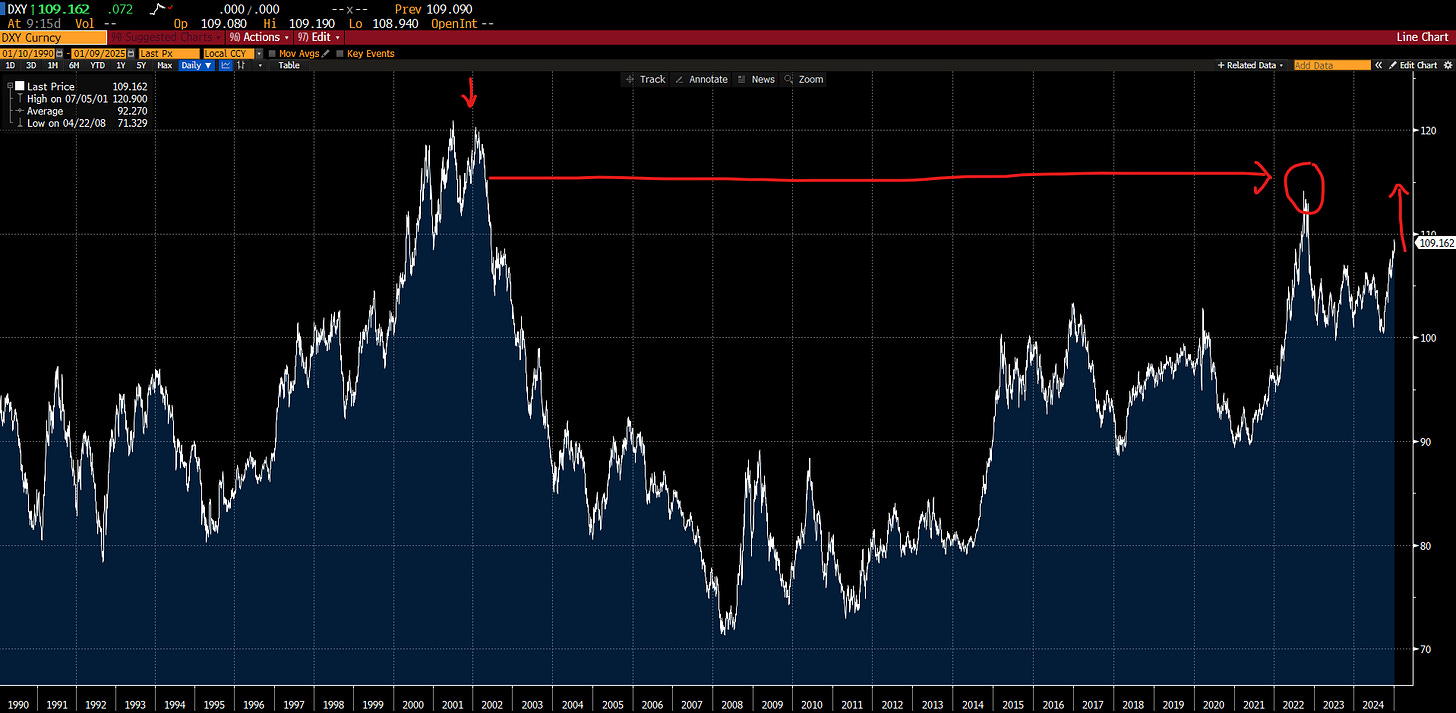USD/ZMW Sigh: A Quick Look At The Road Not Taken…
BY DEAN N ONYAMBU

The Market Brain astutely highlights a critical oversight in Zambia’s economic strategy. In 2024, the Bank of Zambia (BoZ) had a unique opportunity to establish a lower USD/ZMW exchange rate baseline. Subdued economic growth dampened import demand, reducing USD requirements and creating a strategic window for action. By deploying excess USD reserves beyond target thresholds, enforcing and maintaining stringent monetary policies to curb money supply, and implementing de-dollarization regulations—designed to limit USD usage in local transactions—BoZ could have anchored the exchange rate at around 22-23 ZMW per USD. This lower baseline would have better positioned Zambia to handle the inevitable upward pressures from USD strength, enabling the country to absorb the impact more effectively.
However, resistance from USD-earning sectors, such as real estate, led the business community to press the Government of the Republic of Zambia (GRZ) to delay the de-dollarization policy. Although BoZ remained steadfast in advocating for it, political considerations and external pressures ultimately stalled progress. The International Monetary Fund (IMF) recommended that Zambia first achieve macroeconomic stability before pursuing de-dollarization, citing concerns about institutional readiness and the risks associated with premature implementation. Based on global studies, the IMF suggested that the success or failure of de-dollarization often hinges on broader economic conditions. For example, macroeconomic stability, disinflation, and a strong exchange rate anchor in Israel drove successful de-dollarization. Similarly, Uruguay and Peru reduced dollar reliance by implementing robust macro-prudential policies safeguarding their economies during the transition. While this advice was rooted in proven global examples, it inadvertently created a chicken-and-egg dilemma for Zambia, where economic instability drives dollarization, which in turn further amplifies that instability.
Adding to the complexity, Zambia now faces external challenges that amplify its domestic vulnerabilities. As of early 2025, the U.S. dollar is nearing multi-decade highs, driven by strong U.S. economic performance and expectations of only cautious rate cuts from the Federal Reserve. A plurality of analysts anticipate this dollar strength will persist into 2025.
Concurrently, Zambia resumed external debt servicing in 2024, adding additional pressure to its foreign exchange reserves. The strong dollar amplifies the cost of servicing debt denominated in USD, further straining Zambia’s fiscal position and accelerating Kwacha’s depreciation. This external pressure is compounded by the risk of capital outflows from emerging and frontier markets, driven by higher U.S. interest rates, which would deepen the kwacha’s depreciation and inflation cycle.
Now, the same USD earners who resisted de-dollarization stand to benefit the most from the resulting currency weakness. These players hoard USD while the broader population bears the brunt of inflationary pressures and rising prices. Meanwhile, fiscal and monetary authorities remain disconnected, with fiscal policies focused on the political cycle, thus exacerbating the situation.
The USD/ZMW is now poised to break significantly higher. In the first half of 2025, BoZ faces intense pressure to hike the Policy Rate and Statutory Reserve Ratio amidst growing political resistance. Policy missteps loom large, firmly placing local currency debt restructuring at the forefront over the next 2 years. Yet, as inflation and uncertainty mount, one cannot help but sigh at the magnitude of the missed opportunities.
Chart source: Bloomberg
Dean N Onyambu is the Founder and Chief Editor of Canary Compass, a co-author of Unlocking African Prosperity, and the Executive Head of Treasury and Trading at Opportunik Global Fund (OGF), a CIMA-licensed fund for Africans and diasporans (Opportunik). Passion and mentorship have fueled his 15-year journey in financial markets. He is a proud former VP of ACI Zambia FMA (@ACIZambiaFMA) and founder of mentorship programs that have shaped and continue to shape 63 financial pros and counting! When he is not knee-deep in charts, he is all about rugby. His motto is exceeding limits, abounding in opportunities, and achieving greatness. #ExceedAboundAchieve
The Canary Compass Channel is available on @CanaryCompassWhatsApp for economic and financial market updates on the go.
Canary Compass is also available on Facebook: @CanaryCompassFacebook.
For more insights from Dean, you can follow him on LinkedIn @DeanNOnyambu, X @InfinitelyDean, or Facebook @DeanNathanielOnyambu.
